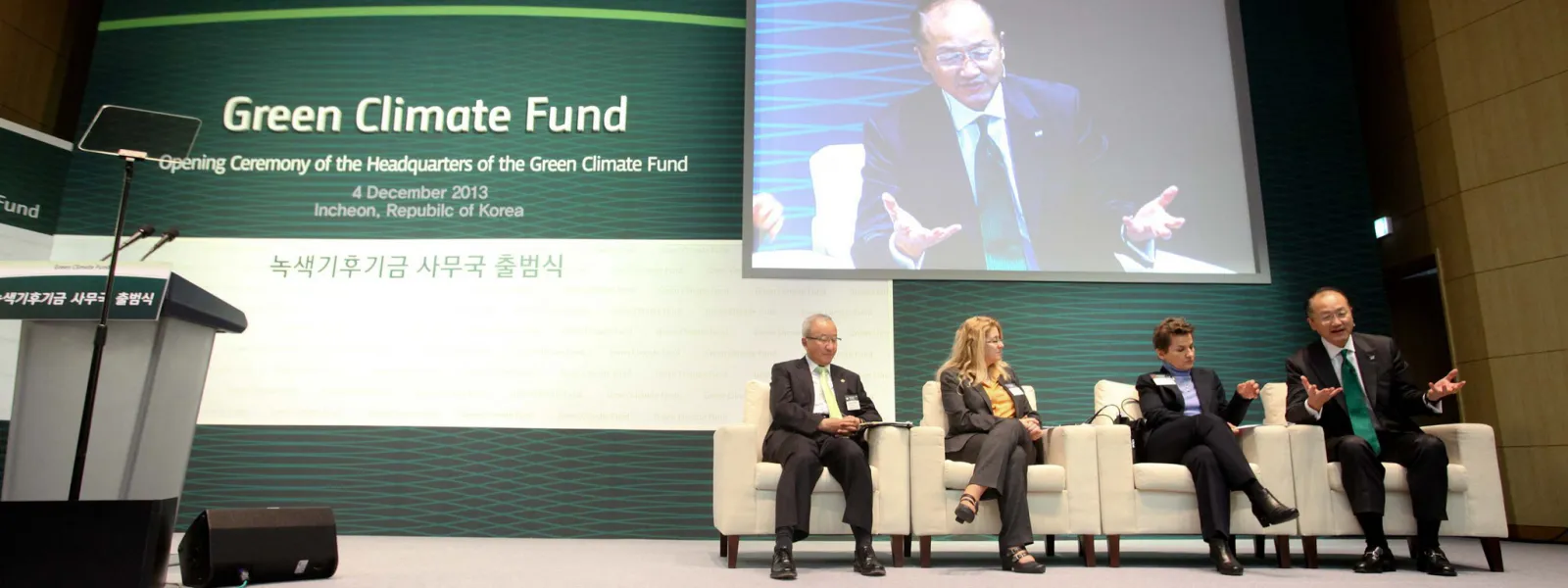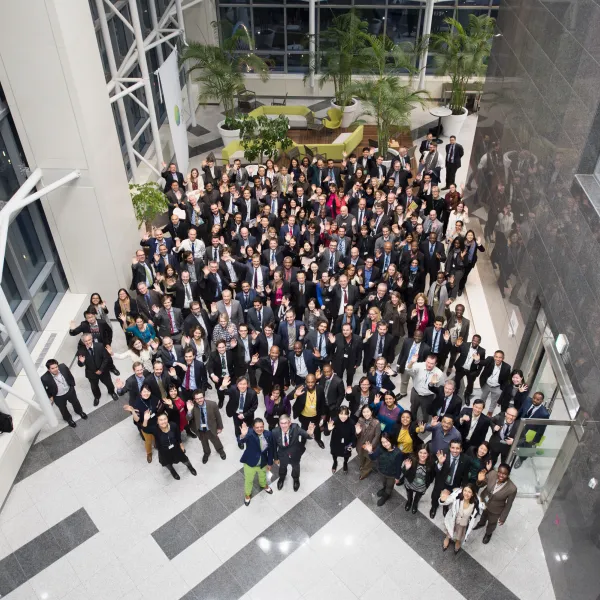
Project
Photo: GCFAdvocating before the Green Climate Fund
The Green Climate Fund is the world's leading multilateral climate finance institution. As such, it has a key role in channelling economic resources from developed to developing nations for projects focused on mitigation and adaptation in the face of the climate crisis.
Created in 2010, within the framework of the United Nations, the fund supports a broad range of projects ranging from renewable energy and low-emissions transportation projects to the relocation of communities affected by rising seas and support to small farmers affected by drought. The assistance it provides is vital so that individuals and communities in Latin America, and other vulnerable regions, can mitigate greenhouse gas emissions and address the increasingly devastating impacts of global warming.
Climate finance provided by the Green Climate Fund is critical to ensure the transformation of current economic and energy systems towards the resilient, low-emission systems that the planet urgently needs. To enable a just transition, it’s critical to follow-up on and monitor its operations, ensuring that the Fund effectively fulfills its role and benefits the people and communities most vulnerable to climate change.
Reports
Read our recent report "Leading participatory monitoring processes through a gender justice lens for Green Climate Fund financed projects" here.
Partners:

Related projects
Latest News
México failed to attend the Green Climate Fund’s fourth Board meeting
Senator Ernesto Cordero, Mexico’s representative on the Board, must be held accountable for his failure to attend a key event for establishing financial support for fighting climate change. Mexico City, Mexico. Senator Ernesto Cordero, Mexico’s representative on the Green Climate Fund (GCF) Board, missed the fourth meeting of the entity, held June 25-28 in Songdo, South Korea. At the meeting, Board members started setting the rules of operation of the Fund, a financial mechanism essential for developing countries to secure the financial support needed to combat climate change. According to the GCF Secretariat, Cordero’s absence was because he had to attend important sessions of the Mexican Congress. Also missing at the Songdo meeting was Chile, the alternate member for Mexico. Chile’s representative also informed the Secretariat of his inability to attend the event. With the absence of both of these countries, one of the seats held by Latin America on the GCF Board was left empty. The Board consists of 24 members: 12 representatives from developing countries and an equal number from developed nations. Each member has an alternate who may participate in the Board meetings without voting rights unless they assume the role of the Board member. Latin America has three seats on the Board, broken down by regional groups: Colombia is paired up with Peru, Belize with Cuba, and Mexico and Chile. Each pair also represents other countries. In this regard, Mexico and Chile’s absence from the fourth meeting jeopardizes the interests of the Latin American countries represented by the duo, which includes Brazil and Argentina. It also contradicts the active role Mexico has played in recent years in climate change negotiations worldwide. What is more, a good opportunity was missed to influence the decisions taken in South Korea. The Fund is being developed to become a main source of financial resources to combat climate change, and at this Board meeting critical decisions were taken to this end. These included decisions on the Fund’s mission, the results and performance indicators to follow, procedures for access, home ownership, financial instruments, structure and organization, among others. The formation of the Green Climate Fund must meet the needs of all regions, but especially those in Latin America. Mexico, Chile and the other countries with a seat on the Board must commit to be active and efficient participants, and to be consistent with their national policies on climate change. It is of utmost importance to ensure the involvement of Latin American governments in international spheres like the GCF because this will ensure effective benefits for the people of this region. For more information on the Green Climate Fund, visit this page.
Read moreAIDA presents report at Durban linking climate change to decline of human rights in Latin America
Calls for measures to protect the human rights of the most vulnerable communities. Durban, South Africa – On Wednesday, December 7, 2011, the Interamerican Association for Environmental Defense (AIDA) presented delegates at climate meetings in Durban, South Africa with a report detailing the negative effects of climate change on human rights to life, access to water, health, food, and housing for millions of people in Latin America. “Climate change causes the greatest harm to the human rights of those who are least responsible for greenhouse gas emissions – vulnerable and historically disadvantaged communities such as peasant farmers, indigenous peoples, and the urban poor,” said AIDA staff attorney Jacob Kopas. “Governments disproportionately responsible for historical and current emissions have an international obligation to contribute more to lasting solutions.” The most troubling of the impacts detailed by the report is a dramatic reduction in access to freshwater in Latin America. Increased melting of glaciers, degradation of high-mountain páramo wetlands, erratic weather patterns and severe droughts will limit dry-season access to water for up to 50 million people in the Tropical Andean region by 2050. Other impacts include heavier rains and flooding, which affected 2.2 million people and caused $300 million of damages in Colombia alone in 2010, and the loss of 80% of Caribbean coral reefs due in large part to warming ocean temperatures and ocean acidification. “The parties must understand that the climate change problem can no longer be ignored. We need to act now to help the world’s most affected communities cope with climate change by securing urgent yet attainable solutions like the Green Climate Fund here in Durban,” said AIDA attorney Andrés Pirazzoli, who distributed the report to delegates at the meeting. AIDA backs the Green Climate Fund, which would finance low-carbon technology adoption and adaptation programs in the developing world. AIDA issued the report this week to inform an investigation by the Inter-American Commission on Human Rights (IACHR) on the link between climate change and human rights. The report calls for a binding climate treaty and for the biggest emitters to pay for adaptation and mitigation measures in the developing world.
Read more